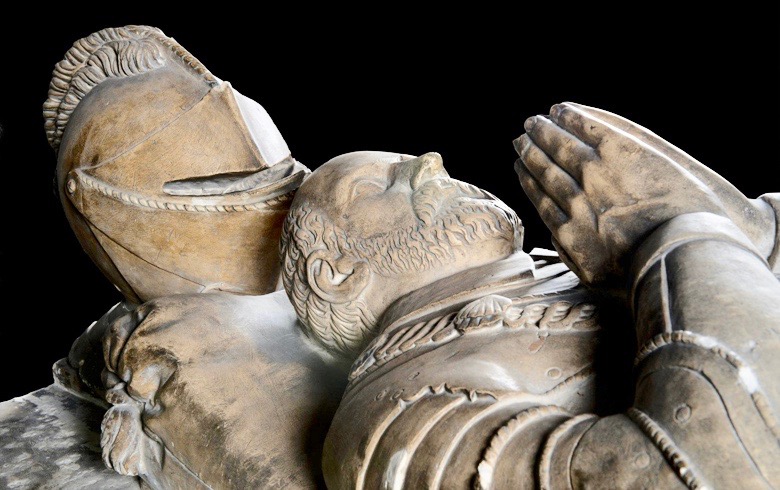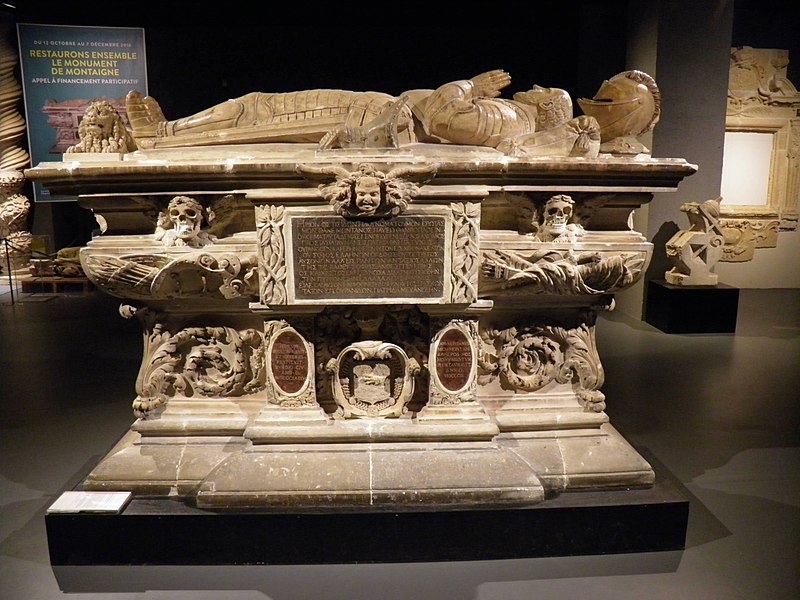In the late sixteenth century, the French nobleman Michel de Montaigne retired to his estate to write his Essays. He began an accidental revolution and helped foster what we know as the modern world. What was the subject of his “attempts”? It “is my own self that I am painting,” he wrote, “wholly naked . . . I myself am the subject of my book.”
Montaigne was true to his word. His first readers admired most his observations on military matters, which came from his firsthand experience of the Wars of Religion. But we hear also of the pleasures of scratching itches and the effects of dining habits on the digestion of this man who seems to have lived for more than a decade with “gravel,” a kidney stone and its excruciating pains.
A keen observer, he even had an eye for his own distractedness: “I have a mind which is delicate . . . the least buzzing of a fly is enough to murder it!”
This interest in the self for its own sake, this renunciation of grand dogmatic claims about the world in favor of a skeptical attention to the self, have naturally earned Montaigne a chapter in books such as Charles Taylor’s Sources of the Self (1989) and Erich Auerbach’s Mimesis (1946).
Auerbach notes the Christian disposition, out of which Montaigne writes, but attends primarily to the way in which the self has become an object of study independent of any universal or transcendent significance. This, for Auerbach, was the definition of the secular, a process begun in the creaturely love of Saint Francis and the brilliant eye for character found in Dante’s Commedia, but brought to disenchanted completion in the essays of Montaigne.
For Taylor, Montaigne constitutes a moment in the increasing inwardness of the modern self, a concern for what he will later call the “buffered self,” that distinct feeling of selfhood, where we presume to be a little world apart from all else – nothing outside ourselves having any absolute claim upon us. Taylor winds up roughly where Auerbach does, pronouncing ours A Secular Age (2007).
Montaigne’s apparent renunciation of pronouncing upon anything but what he knows most intimately and privately because it is simply him will sound familiar to many of us, we who live through what Christopher Lasch lamented as a Culture of Narcissism (1979):
After the political turmoil of the sixties, Americans have retreated to purely personal preoccupations. Having no hope of improving their lives in any ways that matter, people have convinced themselves that what matters is psychic self-improvement: getting in touch with their feelings, eating health food, taking lessons in ballet or belly-dancing, immersing themselves in the wisdom of the East, jogging, learning how to “relate,” overcoming the “fear of pleasure.”
Montaigne may seem like a formidable ancestor of the self-help gurus and self-possessed maniacs of recent decades, where social media allows certain personalities to live in a virtual hall of mirrors, reflecting: ego, ego, ego. In such an age, should we be surprised to hear that public perceptions, truth, even reality itself must be made to conform to the private feelings of certain individuals? The self is all you have left if you refuse to recognize anything outside or above. Politics then plays catch up to our psychology.

And the essayist really does at times seem to have abandoned all aspiration to knowledge of anything outside the self. The longest section of the Essays is the “Apology for Raymond Sebond.” The bulk of that text consists of a series of skeptical arguments about the power of human reason to know truth.
You think human beings are ruled by sincere faith in God? Well, he replies, most persons are religious by custom alone and those who make pretenses of fighting for their religion with great zeal are almost always “using religion” for their own unprincipled ends.
You think man is qualitatively distinct from the lower animals? You will not after reading through his catalog of how clever the beasts have been and how confused and inconsistent human beings are. The “Apology” became a sourcebook for later centuries of skeptical atheists.
But the retiring and reflective Montaigne would not have recognized himself as the begetter of such a mess. Though he disavowed being much of a scholar, his reading in the classics was wide. He was a native speaker of Latin and it shows in the Essays, where each discussion amounts really to a tapestry of quotations from the classics, and where even what were once taken for Montaigne’s own original thoughts are in fact cribs from the Latin greats, particularly Seneca and Plutarch.
An admirer of Plato and Socrates, Montaigne thought his endeavor was of a piece with those ancient philosophers. As one Montaigne scholar observes, “Within the flux of the created universe, Montaigne strove to follow the Delphic injunction, Know Thyself.”
If we now think of self-concern in opposition to knowledge of reality as a whole, Montaigne (like Plato) viewed man as a microcosm. By studying one man, he came to understand human nature, and only by passing through the little world of the self could he arrive at wisdom regarding the macrocosm, the ordered structure of all that is.
The “Apology” argues in favor of skepticism, but – perhaps oddly to us – for Catholic ends. If natural reason leads men into folly, then we have no alternative but to rely on divine revelation as preserved and taught by the authoritative Church. The Huguenots haven’t a rational leg to stand on, should lay down their arms, and submit to the pope.
Alas, we are not merely the sum of our intentions. And our efforts often come to something else altogether. What we find in Montaigne is the ancient philosophical tradition and the Church’s spiritual tradition being corrupted from within, losing gradually and unconsciously what ancient pagans and Christians alike had agreed on: the luminous intelligibility of reality as such and the imprint of the divine intellect even on the natural reason of the human person.
Montaigne’s is a colder, emptier, and more confused world than that of his ancestors.
His Essays should warn us that we need to preserve and renew our traditions and our intellectual culture in their fullness, rather than letting them fall unnoticed into decay. This is not a mere matter of being able to quote our authorities from rote, but of being able to speak the words we inherit with a living voice and from a soul awakened to the splendor of things.
*Image: Cenotaph of Michel de Montaigne [detail] by Prieur and Guillerman, c. 1593 [Musée d’Aquitaine, Bordeaux]. The cenotaph was sculpted in 1593, a year after his death, at the request of Montaigne’s widow, Françoise de la Chassaigne, probably by Prieur and Guillerman, two leading Bordeaux ornamentalists.















